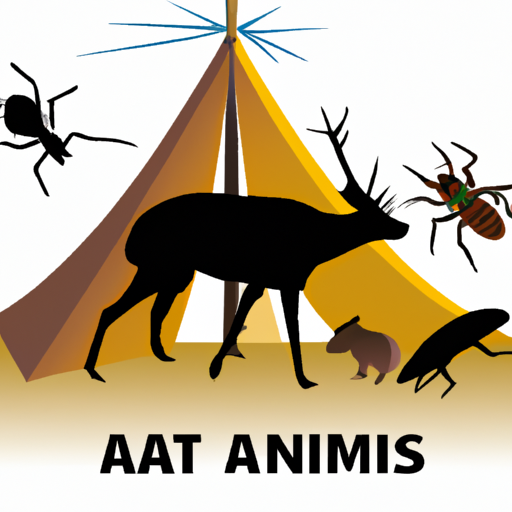 Introduction:
Introduction:
Camping in the great outdoors offers a unique opportunity to connect with nature and escape the hustle and bustle of everyday life. While the idea of spending a night under the stars in a cozy tent sounds idyllic, it’s only natural to wonder about the potential risks and concerns that come with camping. One common question that arises is whether animals pose a threat and whether they would attack a tent. In this comprehensive article, we delve into the topic, examining various factors that influence animal behavior, common encounters, and practical tips to minimize risks.
Understanding Animal Behavior:
1. Animal Instincts and Survival:
Animals have a natural instinct for self-preservation, and their behavior is primarily driven by survival instincts. While most animals are typically wary of human presence, there are certain circumstances that may trigger their curiosity or push them to explore unfamiliar objects, such as tents.
2. Curiosity and Food:
Curiosity is a common trait among animals, and they may investigate tents out of sheer curiosity. However, the primary reason animals approach tents is the potential presence of food. Campers must be aware of proper food storage protocols to avoid attracting animals.
Common Animal Encounters:
1. Bears:
Bears are often the most feared animals when it comes to camping. However, bear attacks on tents are relatively rare, and they mainly occur due to improper food storage or unintentional provocation. Proper food storage techniques, such as using bear-proof containers or hanging food from a tree, can help prevent bear encounters.
2. Small Mammals:
Small mammals like raccoons, squirrels, and mice are more likely to investigate tents in search of food. These animals are typically opportunistic and can be deterred by keeping food sealed in airtight containers and ensuring the tent is properly zipped up.
3. Snakes and Insects:
While snakes and insects might not directly attack a tent, they can inadvertently find their way inside. It is advisable to inspect the surroundings before setting up camp and seal any gaps or openings in the tent to prevent unwelcome visitors.
Minimizing Risks and Ensuring Safety:
1. Campsite Selection:
Choose campsites away from known animal habitats, such as water sources or areas with abundant vegetation. Research the area’s wildlife and consider their behavior when selecting a campsite.
2. Food Storage:
Properly store food and dispose of waste in designated containers or bear-proof lockers. Remove all traces of food smells from the tent to deter animals from approaching.
3. Tent Maintenance:
Regularly inspect and maintain the tent, ensuring no gaps or openings are present. Repair any damages promptly to prevent animals from entering.
4. Noise and Odor:
Animals are often frightened off by loud noises. Keep a small whistle or air horn handy to scare away any curious creatures. Additionally, avoid using scented products that might attract animals.
5. Animal Deterrents:
Consider using animal deterrents such as motion-activated lights, noisemakers, or even bear spray in specific situations. However, always ensure that these deterrents are used responsibly and in accordance with local regulations.
Conclusion:
While the idea of animals attacking a tent may spark fear and concern, it is important to keep in mind that, in most cases, animals do not pose a significant threat. By understanding animal behavior and taking appropriate precautions, campers can minimize risks and enjoy a safe and memorable camping experience. Remember, respecting wildlife and their habitats is crucial for coexisting harmoniously in the great outdoors.
